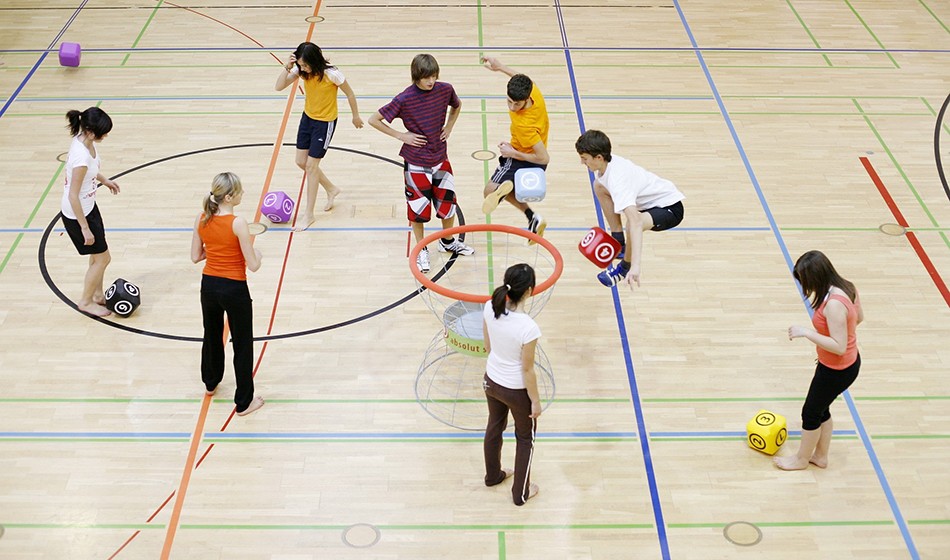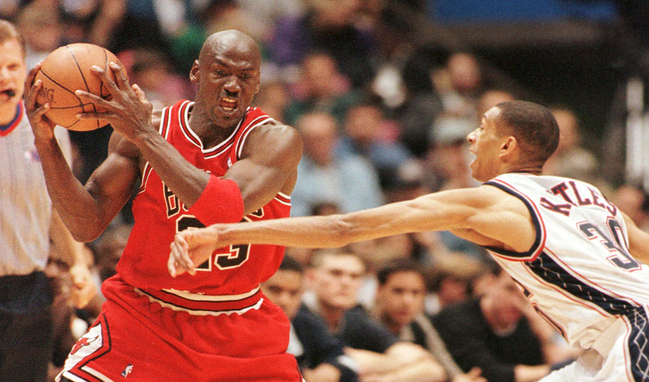Sports have long been more than just a form of entertainment or physical activity. They hold the power to transcend boundaries and act as a catalyst for addressing societal issues and driving meaningful social change. Beyond the thrill of competition, the world of sports is a microcosm of society, reflecting its values, challenges, and aspirations. This essay delves into the multifaceted role of sports in our society, examining how it can be a powerful tool for addressing societal issues and fostering positive social transformation.
The Universality of Sports
One of the remarkable aspects of sports is its universal appeal. Regardless of one's background, ethnicity, or nationality, sports have a unique ability to bring people together. Whether it's the
FIFA World Cup uniting millions from different corners of the globe or a neighborhood basketball game fostering camaraderie, sports have a way of breaking down barriers. This universality is a valuable asset in addressing societal issues and catalyzing social change.
Promoting Inclusivity and Diversity
Sports have the potential to be a platform for promoting inclusivity and celebrating diversity. When athletes from various backgrounds come together to compete, it sends a powerful message that talent and dedication know no bounds. Icons like Muhammad Ali, who fought for civil rights, or Jackie Robinson, who broke the color barrier in baseball, used sports as a means to challenge societal norms and foster social change.
In recent years, initiatives like the "It Gets Better" campaign in the National Football League (NFL) and the "You Can Play" project in the
National Hockey League (NHL) have aimed to make sports more inclusive for LGBTQ+ athletes. These initiatives have helped change the conversation and create safer spaces for LGBTQ+ individuals in the world of sports.
Empowering Women
Sports have also played a crucial role in advancing gender equality. From the rise of women's soccer to the prominence of female athletes in traditionally male-dominated sports, women have increasingly become trailblazers in the sports world. Icons like Serena Williams, Simone Biles, and Megan Rapinoe have not only achieved remarkable success but have also used their platforms to advocate for gender equality and social justice.
Title IX, a U.S. federal law enacted in 1972, has been instrumental in promoting gender equity in education and athletics. It has opened doors for women and girls to participate in sports and has paved the way for countless female athletes to pursue their dreams. The success stories of female athletes serve as a source of inspiration for young girls worldwide, encouraging them to break down gender barriers in various fields.
Fostering Health and Well-being
Beyond its social impact, sports play a vital role in promoting physical and mental health. Regular physical activity, whether through organized sports or individual pursuits, is essential for a healthy lifestyle. The promotion of physical fitness through sports can help address societal issues related to obesity and sedentary lifestyles, particularly in younger generations.
Moreover, sports can have a positive impact on mental health. Engaging in sports and physical activity is known to reduce stress, anxiety, and depression. The sense of achievement and camaraderie that comes from being part of a sports team can boost self-esteem and improve overall well-being. By addressing these health-related societal issues, sports contribute to a healthier and more resilient society.
Youth Development and Education
Sports offer valuable opportunities for youth development and education. Participation in team sports teaches young individuals essential life skills such as teamwork, discipline, leadership, and time management. It instills values like perseverance and sportsmanship, which are crucial for personal growth and success in all aspects of life.
Organizations like the Boys & Girls Clubs of America and the Positive Coaching Alliance use sports as a platform for youth development. They provide mentorship, coaching, and safe spaces for young people to learn and grow. By investing in the next generation through sports, society can address issues related to youth delinquency, academic underachievement, and the lack of positive role models.
Promoting Social Responsibility
Professional sports teams and athletes often use their influence to promote social responsibility and philanthropy. Through charitable foundations and community engagement initiatives, sports organizations and individuals give back to their communities. This not only addresses societal issues such as poverty, education inequality, and access to healthcare but also serves as an example of the power of collective action.
For instance, LeBron James, through his LeBron James Family Foundation, has committed to providing educational opportunities and support to underserved youth. Similarly, the Golden State Warriors established the "Hoops for Kids" program, which aims to improve the lives of disadvantaged children through basketball-related initiatives. These efforts showcase how sports can be a driving force for positive change in communities.
Raising Awareness of Social Issues
Athletes and sports teams have a unique platform to raise awareness of pressing social issues. Whether through on-field protests, public statements, or gestures of solidarity, sports figures can draw attention to important causes. In recent years, we have witnessed athletes taking a stand on issues such as racial injustice, police brutality, and environmental conservation.
The "Take a Knee" movement, initiated by NFL quarterback Colin Kaepernick, brought national attention to issues of racial inequality and police violence. Kaepernick's peaceful protest during the national anthem sparked a nationwide conversation and inspired other athletes to use their platforms for social advocacy.
Similarly, Greta Thunberg, a young climate activist, used her passion for sailing to draw attention to climate change. Her journey across the Atlantic to attend a United Nations climate summit garnered significant media coverage and inspired countless others to take action against environmental degradation.
Sports as a Vehicle for Diplomacy
Sports can also transcend international boundaries and serve as a diplomatic tool for fostering goodwill between nations. Events like the
Olympic Games and the FIFA World Cup bring together countries from all over the world in the spirit of competition and cooperation. These occasions provide opportunities for diplomacy, cultural exchange, and international dialogue.
One notable example of sports diplomacy is the "Ping Pong Diplomacy" between the United States and China in the early 1970s. Table tennis players from both countries engaged in friendly matches, paving the way for improved relations between the two nations. Similarly, the joint North and South Korean teams at the 2018 Winter Olympics were a symbol of hope for peace and reconciliation on the Korean Peninsula.
Community Building and Social Cohesion
Sports have a unique ability to build community and foster social cohesion. Whether it's the camaraderie among fans at a stadium or the bonds formed within a sports team, sports bring people together in a shared experience. This sense of belonging and shared identity can transcend societal divisions and promote unity.
Local sports clubs and recreational leagues serve as hubs for community engagement. They provide spaces where individuals from diverse backgrounds come together to pursue a common passion. This sense of community can have a ripple effect, leading to increased social cohesion and a stronger sense of belonging.
Challenges and Controversies in Sports
While sports have the potential to address societal issues and catalyze social change, they are not without their challenges and controversies. Issues such as doping, corruption, and discrimination continue to plague the sports world. Addressing these issues is essential to fully realize the positive potential of sports.
Doping and Performance Enhancement: The use of performance-enhancing drugs remains a persistent issue in sports. It not only undermines fair competition but also poses serious health risks to athletes. Anti-doping organizations and regulations have been established to combat this problem, but it remains a cat-and-mouse game.
Corruption and Governance: Corruption scandals within sports organizations, such as FIFA and the
International Olympic Committee (IOC), have raised questions about the integrity and transparency of sports governance. Reforms are necessary to ensure that sports organizations prioritize ethical conduct and accountability.
Discrimination and Inequality: Despite progress, discrimination based on race, gender, sexual orientation, and disability still exists in sports. Athletes continue to face barriers and prejudice. Addressing these issues requires a concerted effort to promote diversity and inclusion at all levels of sports.
Commercialization and Exploitation: The commercialization of sports has led to concerns about athlete exploitation and the prioritization of profit over athletes' well-being. Balancing the financial interests of sports organizations with the welfare of athletes is an ongoing challenge.
sports are a powerful force in addressing societal issues and catalyzing social change. Their universality, ability to promote inclusivity and diversity, and capacity to empower individuals make them a valuable tool for positive transformation. From advancing gender equality and promoting physical and mental health to raising awareness of social issues and fostering diplomacy, sports have a profound impact on society.
However, it is essential to acknowledge and address the challenges and controversies within the world of sports, such as doping, corruption, discrimination, and exploitation. These issues must be tackled head-on to ensure that sports continue to serve as a force for good in our society.
As we move forward, it is crucial for athletes, sports organizations, policymakers, and society as a whole to recognize the immense potential of sports in addressing societal issues and work together to harness this power for the betterment of our communities and the world. Sports can and should be more than just a game; they can be a driving force for positive change in our ever-evolving society.

















